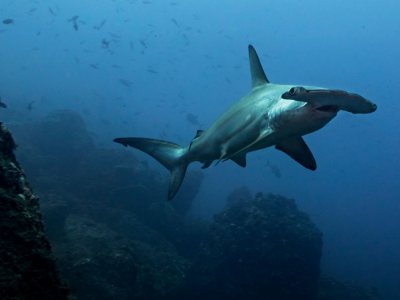Projects in Caribbean
|
 |
Corsola, automated coral cultivation for reef restoration, the Caribbean, 2025-2026
BRANCH Foundation develops innovative, science-based solutions for restoring coral ecosystems. The foundation set up Project Corsola to focus on large-scale coral cultivation to restore biodiversity and make the restoration process affordable. After a successful pilot project in the Netherlands, the organisation plans to expand its activities in the Caribbean. Work is underway to establish large-scale nurseries, lowering the cost per coral and further optimising the cultivation process. This approach is industrial in scale but ecologically well considered. The project is strongly data-driven. Data on growth rates, environmental factors, costs and efficiency are used to select coral species that are more resilient to climate stress and to continuously improve the restoration process. The Turing Foundation is contributing €11,000 towards this project. See also:  Corsola, geautomatiseerde koraalkweek voor rifherstel, Caribisch gebied |
|
Long-term, adaptive management systems to promote resilient reefs and communities, Honduras, 2025-2027
The coral reefs of the Bay Islands in Honduras are vital to biodiversity, economic development and cultural heritage. They support thousands of people through fisheries and tourism but face severe threats from overfishing and pollution. The Coral Reef Alliance (CORAL) collaborates with local coastal communities to protect these reefs, aiming to establish a resilient network of healthy and diverse reefscapes that can adapt to climate change. This project aims to strengthen official marine protections through improved policy, sustainable financing and effective enforcement of Marine Protected Areas (MPAs). For instance, 70% of the marine area around Roatán will be patrolled, and a new no-take zone is being established. Protection of Cordelia Banks, a key area for fish populations, is also being enhanced. Active involvement of local communities is increasing trust between fishers and enforcers, with the goal of ensuring long-term reef conservation. In addition, the project is addressing wastewater treatment in Coxen Hole, where untreated sewage is currently discharged directly into the sea. This is expected to result in measurable water quality improvements. If successful, it will be expanded to five other communities. With this integrated approach to marine conservation and wastewater management, the project supports coral reef preservation, fish population recovery and improved living conditions for local communities. The Turing Foundation is contributing €245,000 towards this project (of which €75,000 in 2025). See also:  Protecting and restoring the Mesoamerican Reef, Honduras |
 |
Boosting the habitat of hammerhead sharks, Golfo Dulce, Costa Rica, 2023-2025
Misión Tiburón is an NGO set up by two marine biologists. During their work they discovered that the hammerhead shark is one of the planet's most endangered species. They also realised that in the last decade insufficient attention has been paid to the species' nursery grounds and that protecting mangroves is essential to this shark's reproduction. A particularly important nursery ground is Golfo Dulce, on the Pacific coast of Costa Rica and one of only five tropical fjords in the world. Whilst Misión Tiburón's task was originally research, it now mostly focuses on protecting and restoring mangroves, involving local communities in this protection, and collaborating with the Costa Rican government to achieve goals in the climate agreement. In recent years, the mangroves in the region have been threatened by urban growth, sea-level rise, erosion and sedimentation. For this reason, the Misión Tiburón team decided to integrate an ecosystem approach in its work. The team now consists of eight members, with the founders still actively involved in the organisation's work. It collaborates closely with the local and national government in Costa Rica and with international organisations such as UNEP and IUCN. This project will support the Costa Rican government in meeting its international obligations to protect and maintain 100% of its coastal areas, ensure management and effective monitoring of the wetlands and develop mechanisms to sustainably use mangroves for locals' livelihoods. The organisation started restoring mangrove areas in the last year and now needs additional financing to increase the scale of its restoration work. Misión Tiburón will continue to involve local communities and promote alternatives for their livelihoods. The aim of the project is to strengthen the hammerhead shark reserve in Golfo Dulce in Costa Rica by protecting and restoring mangrove areas and reducing local communities' ecological and social-economic vulnerabilities. The Turing Foundation is contributing € 200,000 towards this project (of which, € 40,000 in 2025). See also:  Versterken van het leefgebied van de hamerhaai, Golfo Dulce, Costa Rica |
|
Protection and Restoration of the Mesoamerican Reef, Honduras, 2020-2022
Coral Reef Alliance (CORAL) has been working with local coastal communities since 1994 to protect 'their' reefs, creating a network of healthy and diverse reefscapes that will be able to adapt to climate change. The Mesoamerican region (MAR) has the second-largest barrier reef in the world, along the coast of Belize, Mexico, Guatemala and Honduras. This project is focused on the Tela Bay coastal area and its thirteen communities. CORAL is helping them strengthen their local management structures, improve monitoring and enforcement of rules, and find alternative sources of income that will reduce dependence on fish. These interventions will combat overfishing, especially of juvenile fish, allowing more fish to live in the reef and keep the coral free of algae. The Turing Foundation is contributing €66,000 towards this project (of which, €16,000 in 2022). See also:  Protecting and restoring the Mesoamerican Reef, Honduras |












